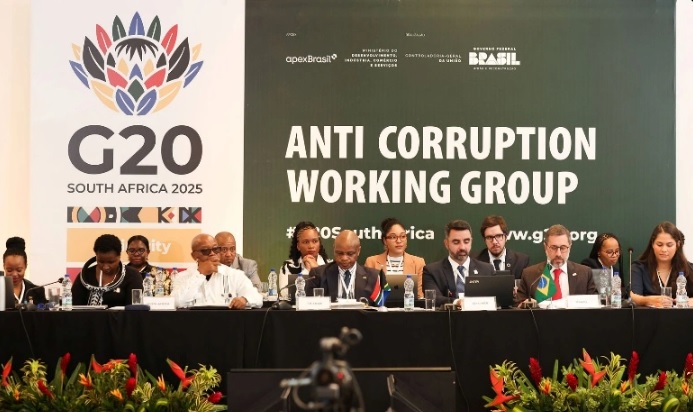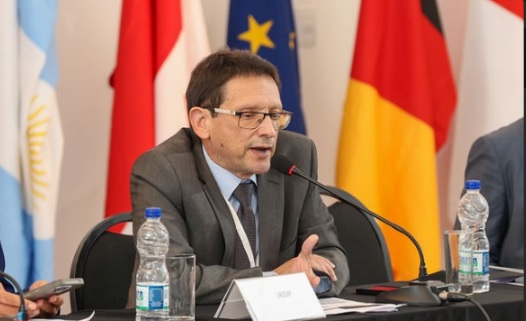TCU Shares Good Practices on Public Procurement Integrity at G20 Meeting
By Secom / Serint

The Deputy Secretary of the Department of Government Audit for Strategic Information and Innovation (Seinc), Hamilton Caputo, represented the Brazilian Federal Court of Accounts (TCU) at the event “Measuring Integrity in Public Procurement: Methodology, Data and Indicators for Anti-Corruption Action,” organized by the United Nations Development Programme (UNDP) in partnership with the TCU. The meeting took place on June 9, during the 2nd G20 Anti-Corruption Working Group (ACWG) meeting, held at the headquarters of the Federal Police in Brasília. The event gathered G20 delegates, representatives of international organizations, development partners, civil society, and academia
During his presentation, Caputo highlighted TCU’s efforts to improve transparency and strengthen public sector integrity, including the creation of LabContas and tools such as Alice, the Budget Analysis System (SAO), and the Platform for Risk and Typology Analysis (Parts), which help automatically detect risks in procurement processes. He also emphasized the use of continuous audits of public works and procurement, the growing adoption of artificial intelligence, and the use of detailed data on suppliers, company shareholders, links with public agents, and tools such as network analysis and social media mining to refine risk assessments.
 Caputo underlined the relevance of TCU's participation: “Given the nature of the work led by the United Nations Development Programme, it was an excellent opportunity to share our practical experience in automated analysis of public procurement with the G20 Anti-Corruption Working Group, showcasing how we use cutting-edge technology to enhance efficiency, coverage, and depth in identifying red flags.”
Caputo underlined the relevance of TCU's participation: “Given the nature of the work led by the United Nations Development Programme, it was an excellent opportunity to share our practical experience in automated analysis of public procurement with the G20 Anti-Corruption Working Group, showcasing how we use cutting-edge technology to enhance efficiency, coverage, and depth in identifying red flags.”
The initiative is part of UNDP’s broader strategy to address corruption in public procurement, which accounts for between 15% and 30% of GDP in many countries. The event introduced UNDP’s methodology for measuring integrity in public procurement.
The methodology is based on standardized indicators drawn from open data, including red flags such as single bids, discretionary procedures, contract amendments, delays in publication, and links to tax havens. These are aggregated into an index that reflects the level of integrity in public procurement across countries. During the event, experts shared feedback to help refine the indicators ahead of the global launch of the methodology, scheduled for December 2025.